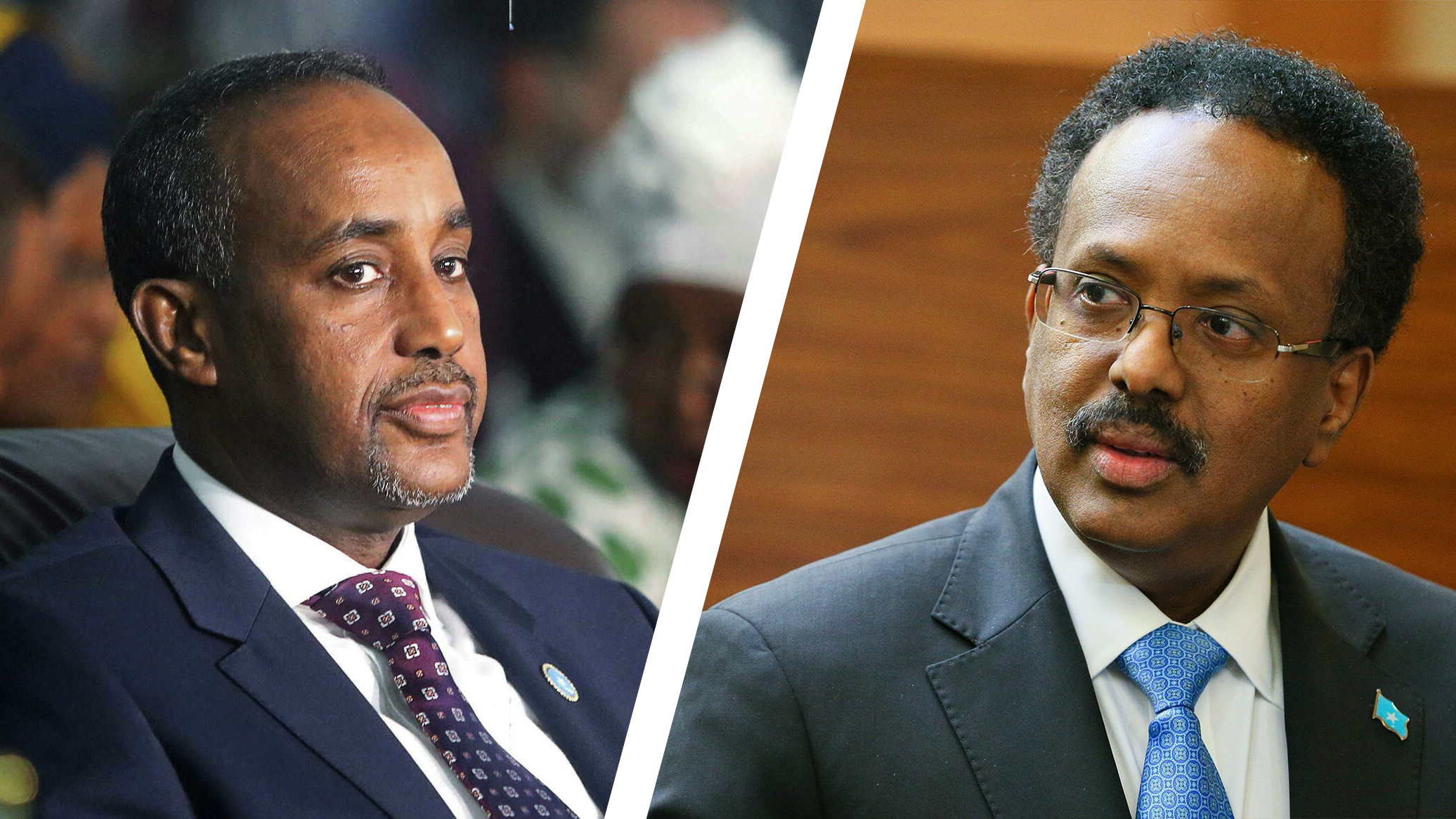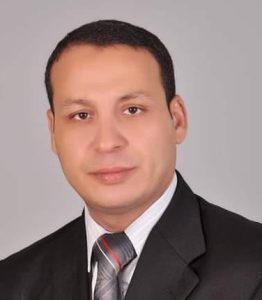The political crisis in Somalia has taken a dangerous turn, as a dispute between outgoing president Mohamed Abdullah Mohamed, known as Farmaajo, and Prime Minister Mohamed Hussein Roble, over organizing the upcoming elections has escalated. On December 28th of last year, the president issued a decree stripping the Prime Minister of his powers, to which the latter refused to comply. Meanwhile, forces loyal to Roble were stationed around the Presidential Palace on December 29th. Some international and Somali monitoring reports indicated that the Somali Al-Shabaab movement intensified its terrorist attacks on December 30th in the city of Balad, located 37 km from the Somali capital Mogadishu. These developments raise fears of a possible Al-Shabab expansion and control over Mogadishu, as well as the risk of a return to civil war.
The current crisis between President Farmaajo and Prime Minister Roble dates back to April, when the first clash occurred between them after Farmaajo extended his term of office for another two years, prompting factions of the army allied with both men to take over different areas in Mogadishu. The United States attempted to exert pressure on both parties, with Secretary of State Anthony Blinken threatening to impose sanctions on Farmaajo. This prompted the two parties to settle the dispute; Prime Minister Roble was instructed to organize the postponed legislative and presidential elections, while Parliament overturned the decision to extend the presidential term. Since then, the two have disagreed over their respective powers, and have traded accusations over the failure to organize the general elections that were scheduled to take place in February 2021.
New Chapter
Farmaajo’s decree, on December 28th, to suspend Roble’s powers, accusing him of involvement in corruption cases, brought the political crisis into a new phase, with both sides calling on military support. As the prime minister refused to comply, the president instructed security forces to surround the offices of the council of ministers, while forces loyal to the prime minister headed to the Presidential Palace. There are several reasons for this latest escalation of the political crisis in Somalia, including:
A power struggle: Both parties seek to exclude the other from the political scene. President Farmaajo wishes to tighten his control ahead of the expected presidential elections, using all means to weaken and exclude the Prime Minister. The prime minister’s response to the stripping of his authority was to announce that he would take over as president, describing Farmaajo as a former president. Roble said that the office of prime minister would take over responsibility for all government functions, including commanding the army, and that Farmaajo “cannot give orders to the armed forces, nor they can take orders from him.”
Mutual accusations of corruption and delaying elections: Farmaajo accused Roble of confiscating land owned by the Somali army. Roble, in turn, accused him of trying to overthrow the government, the constitution, and the laws of the country. The crisis deepened after the Commander of the Naval Forces, Abdel Hamid Mohamed, accused the Prime Minister of confiscating lands belonging to the Somali Navy, which led to Somali Defense Minister Hassan Hussein opening investigations into the accusations. The issue continued to develop until the Prime Minister conducted a partial Cabinet reshuffle in which the Ministers of Defense and Justice switched posts.
Growing military involvement: The commander of the Presidential Guard Hassan Aden Dhi’is was arrested on charges of involvement in a coup attempt, after he sent troops to seize the Prime Minister’s office, in what government officials described as a “failed coup attempt” orchestrated by Farmaajo. Commander of the Somali army Odowaa Yusuf Rageh dismissed Dhi’is from his post before ordering his arrest. Colonel Ahmed Gelle was chosen as the new commander of the Presidential Guard, a day after the power struggle in the Somali leadership reached its climax. Somali Defense Minister Abdelkader Mohamed Nour asked the Armed Forces to support the pursuit of the “failed coup” perpetrators, urging them to start receiving orders from the Prime Minister’s office, and not from President Farmaajo.
External support: Some reports indicate that Turkey supports President Farmaajo’s position, while Washington has threatened to sanction him, and announced its support of the Prime Minister. Washington also issued a warning to those attempting to disrupt the upcoming presidential and parliamentary elections. The US State Department’s African Affairs Bureau described the attempt to suspend Roble as a cause for concern, adding that Washington supports his efforts to hold fast and credible elections. “All parties should end escalating actions and rhetoric,” it added.
Dangers of Escalation
The Prime Minister’s suspension led to a division among security and military forces, which poses a number of risks, including:
The risk of renewed civil war, given Somalia’s fragile political structure and the federal system that grants its regions autonomy. The government in Mogadishu cannot exert its control over large parts of the country, with clans and federal regions largely running their own affairs. There is a growing tendency in some regions to secede from the federation and declare independence.
Accordingly, the military confrontation between the President and the Prime Minister could pave the way for other factions and states aspiring for independence to engage in the conflict, plunging the country once again into civil war, especially since most states reject the measures taken by the president to seize power. The main opposition groups have announced they will not recognize Farmaajo as head of state, due to his failure to hold timely elections.
The risk of Al-Shabaab’s return to power. The movement has been seeking for years to overthrow the central government and has benefited from the Biden administration’s suspension of direct drone strikes on its bases, helping it gain steam. The group appears to be the primary beneficiary of the political crisis, which it is already exploiting to intensify its attacks on Somali cities. Somali reports have indicated that the group seized control of the city of Balad on December 29th, 37 km from the Somali capital Mogadishu. On December 16th , it captured a town 30 km south of Dusmareb, the capital of Galmudug, after the departure of state forces.
The group also briefly captured the town of Matapan before Galmudug state forces regained control of it. Al-Shabaab is taking advantage of the growing military confrontations between the Somali government and its former allies Ahl Assunnah wal Jamaah, a militia in Galmudug that played a key role in the fight against the group. The military escalation between the forces loyal to the President and the forces loyal to the Prime Minister is likely to enable the group to expand its operations and terrorist attacks and advance towards Mogadishu.
US support of stability in Somalia
The growing political conflict between the President and Prime Minister poses a major threat to Somalia’s stability, as the central government faces growing ambitions for independence in some of its regions, as well as rising Al-Shabaab terrorist attacks to occupy Somali cities and towns. Rising military escalation and confrontations between the factions and militias in the capital could lead to a security collapse, and Al-Shabaab may succeed in exploiting the situation to seize power.
However, the Biden administration, which has shown an increasing interest in resolving the crisis, is unlikely to allow the movement to seize power. The Biden administration remains interested in maintaining stability in Somalia and the Horn of Africa in a way that enhances its security interests in the region, especially facing growing Chinese influence. The US hopes that political change in Ethiopia, Somalia, and Sudan, will allow it to forge strong ties with new governments, and is keen to avoid turmoil and instability in these countries, as that would undermine its interests in the region.
The United States is therefore expected to exert all efforts to hold the presidential and parliamentary elections in Somalia in 2022, and to intensify its military operations against Al-Shabaab. Despite the previous US administration’s announcement of the withdrawal of US forces from Somalia, the United States still maintains a military presence in the wider region, especially in Djibouti and Kenya. The Joint Task Force in the Horn of Africa, based at the US military base in Djibouti, continues to play an important role in combating terrorism and intervening in crises. In November, the US announced the establishment of a new task force called the Red Dragon Task Force, which is expected to begin its missions in early 2022 to support the Joint Task Force in the Horn of Africa to carry out its tasks in combating terrorism and crisis intervention.


